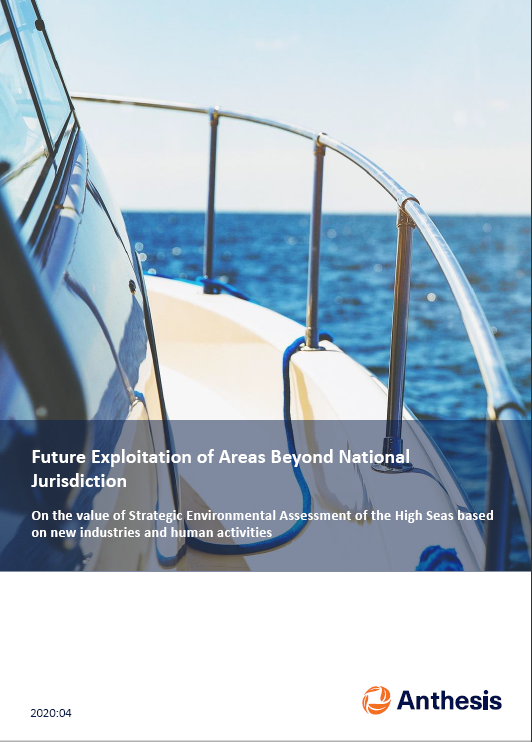Future exploitation in marine areas beyond national jurisdiction
Negotiations are now underway within the United Nations on a new implementing agreement to the Convention on the Law of the Sea. This report is the result of a forward-looking project that has tried to foresee which kind of activities/exploitations or type of resource extraction that may develop in the areas concerned. It has also looked at the possible value that strategic environmental assessment can bring to the future exploration phase.

Summary
Nearly 70% of the world's maritime areas are beyond national jurisdiction. These areas and their biodiversity are facing an increased interest. In recent decades, the exploitation of the High seas and its biodiversity has increased, while these areas and the effects of exploitation on their biodiversity remain relatively unexplored. Negotiations are now under way within the United Nations on a new implementing agreement on the Convention on the Law of the Sea to ensure the conservation and sustainable use of marine biodiversity in areas beyond national jurisdiction (the BBNJ agreement).
In light of this negotiation, the Swedish Agency for Marine and Water Management has commissioned Anthesis to carry out an investigation trying to look into the future and to try to foresee what new types of activities/exploitations or what kind of resource extraction might develop in the areas concerned within a time horizon of 30-50 years or more. This report presents the results.
This report:
- Identifies and describes the new industries/activities that within a time horizon of 30-50 years have been assessed as possible and likely to take place in international waters.
- Evaluates these activities on the basis of the likelihood that they are carried out and their respective complexity.
- Assesses the added value of the implementation of strategic environmental assessment for the respective identified future activity/group of activities.
- Concludes that the planning for several possible future activities in ABNJ are likely to benefit from requirements for strategic environmental assessment. The added value is seen both from an environmental perspective and from a financial point of view through reduced financial risk for developers and financiers. However, all aspects need to be considered in order to optimize the benefits of each branch of activity.
The conclusions of the report are the authors' own.




